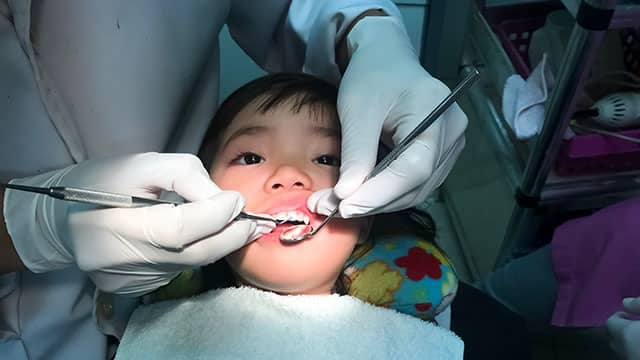What is Lymphoma?
Lymphoma is a type of cancer in the lymphatic system (lymph nodes, bone marrow, spleen, and thymus gland) that can also affect other organs in the body. The two main types of lymphoma are Hodgkin's lymphoma and Non-Hodgkin's lymphoma, and also include:
- Chronic lymphocytic leukemia
- Cutaneous B-cell lymphoma
- Cutaneous T-cell lymphoma
- Waldenstrom macroglobulinemia
According to the World Cancer Research Fund, Hodgkin's and Non-Hodgkin's lymphoma account for about 3.5% of cancers worldwide.
Most often, the lymphomas themselves are not the cause of adverse effects on your oral health. The treatments are.
Symptoms of Lymphoma
Symptoms of lymphoma include:
- Swollen lymph glands in your neck, armpits, or groin
- Chronic fatigue
- Itchiness of your skin
- You're short of breath
- You're running a high temperature
- You sweat in your sleep
- You're experiencing shortness of breath
- Or you've lost weight unexpectedly
If you have any of these symptoms, and they persist or concern you, make an appointment with your medical professional. It's best to be safe and to catch lymphoma early so you can begin treatment right away.
How Lymphoma Treatment Can Affect Your Oral Health
Chemotherapy, radiation therapy, and drug therapy may adversely affect your oral health in various ways. You may experience:
- Pain in your mouth and gums
- Dry mouth resulting in sores, tooth decay, or infection
- Difficulty swallowing
- A burning sensation in your tongue
- The peeling and swelling of your tongue
- And your sense of taste may change
It's important to keep in regular contact with your dental and medical professionals so they can help you determine what steps you can take to ease the symptoms you may experience. If your oral health effects are severe enough, your medical professional may recommend changes in your treatment.
How to Practice Good Oral Hygiene During Lymphoma Treatment
Practicing good oral hygiene may require some adjustments while undergoing treatment for lymphoma. Continue brushing twice a day, but consider getting a toothbrush with soft bristles that will be more gentle on your mouth. Running the bristles under warm water can soften them even more.
- Use a fluoride toothpaste
- Rinse with an antiseptic mouthrinse daily (your dental hygienist will help you find one that works for your needs)
- Use a water flosser or interdental brushes gently every day
Suppose you're experiencing dry mouth from lymphoma. In that case, you won't have enough saliva to wash away food particles, causing it to collect on your teeth and gums and allowing bacteria to flourish. Keeping your mouth moist can help you avoid sores, tooth decay, and infections:
- Drink water
- Suck on ice chips
- Chew on sugarless gum
- Suck on sugar-free hard candy
- Use a saliva substitute
If you're experiencing pain in your mouth, it's important to watch what you eat and drink. Some tips for eating safely:
- Eat soft foods that are easy to chew and swallow
- Eat healthy and nutritious foods that are good for both your overall health and your oral health
- Take small bites.
- Chew slowly
- If you have trouble swallowing, soften your food with gravy, sauces, broth, yogurt, or other liquids
Foods and drinks you should avoid:
- Sharp, crunchy foods (like chips that could scrape or cut your mouth)
- Foods that are hot or spicy
- Foods high in acidic content, like citrus fruits and juices, which can irritate your mouth
- Sugary foods, like candy or soda, that could cause cavities
- All tobacco products
- And alcoholic drinks
And one last important piece of advice – smile! According to the Mayo Clinic, smiling and laughter will do more than decrease stress and improve your mood. It can even relieve pain and improve your immune system, too. That's not to say it's unhealthy to go through a full range of emotions at this time, but try to keep a positive outlook because it can have real effects on your overall health and ability to recover. We wish you the very best in any difficult times you may face, and we send you an abundance of love and support. You can get through this!
This article is intended to promote understanding of and knowledge about general oral health topics. It is not intended to be a substitute for professional advice, diagnosis or treatment. Always seek the advice of your dentist or other qualified healthcare provider with any questions you may have regarding a medical condition or treatment.
ORAL HEALTH QUIZ
What's behind your smile?
Take our Oral Health assessment to get the most from your oral care routine
ORAL HEALTH QUIZ
What's behind your smile?
Take our Oral Health assessment to get the most from your oral care routine















